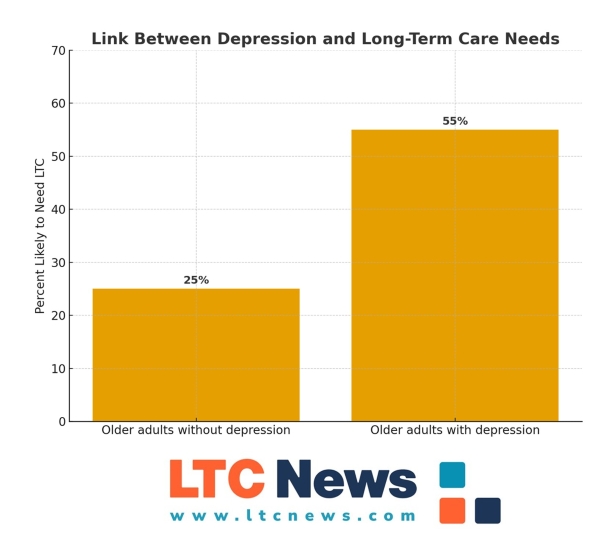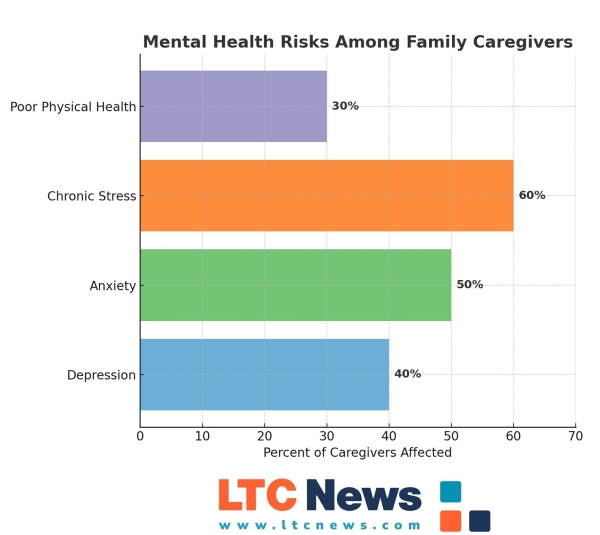Mental Health Matters. Online Therapists Help Even More as You Age

It’s a quiet battle many people carry inside, often without ever saying a word. Maybe you—or someone you love—knows what it’s like to tuck those feelings away, hoping they’ll pass. If you’re over 50 or caring for aging parents, you understand how heavy it can feel to admit when something isn’t right emotionally.
Many older adults grew up in a time when talking about mental health simply wasn’t done. Instead of reaching out, you push forward, trying to mask the weight of sadness, anxiety, or loneliness. But inside, it lingers—real, and sometimes overwhelming.
But the truth is, your mental health directly affects your physical health, cognitive function, and overall quality of life. Ignoring emotional struggles can lead to faster decline, increased risk of dementia, and even a higher likelihood of needing long-term care.
Depression and anxiety are not normal parts of aging, but they are common and treatable. — Dr. Christine Moutier, chief medical officer of the American Foundation for Suicide Prevention, in an interview with The New York Times.
When older adults get help, their outcomes improve dramatically.
How Mental Health Changes Over Time
As you age, several factors converge to make mental health more fragile:
- Life transitions — Retirement, loss of a spouse, or becoming a caregiver can bring feelings of grief or isolation.
- Chronic illness — Conditions like diabetes, Parkinson’s, or heart disease increase the risk of depression.
- Cognitive decline — Stress and untreated depression can accelerate memory loss and reduce resilience.
According to the National Council on Aging, one in four adults over 65 experiences some form of mental health issue, but two-thirds never receive treatment.
These issues can lead to a need for long-term care, at home or in a facility. The growing cost of long-term care can easily change lifestyle and legacy. Medicare will only pay for short-term skilled care. Unless someone has Long-Term Care Insurance or qualifies for Medicaid due to limited financial resources, the physical, mental, and financial stress on the family can be great.

Typically, you should consider LTC Insurance before you retire, when premiums are lower and better health allows you more options.
Teletherapy Makes Opening Up Easier
For many, the hardest part is admitting you need help. That’s where teletherapy comes in. Speaking to a professional from the privacy of your home can reduce stigma and make it easier to share feelings you may otherwise keep hidden.
During the pandemic, virtual counseling became mainstream. Today, nearly 40% of adults who receive therapy use telehealth options, according to the Kaiser Family Foundation. This shift has been especially valuable for older adults with mobility issues or those in rural areas where in-person care is limited.
Why Therapy Access Matters in Long-Term Care Planning
Your mental health affects more than just you—it shapes how your family and caregivers manage challenges, too. Therapists provide coping strategies, improve communication, and reduce stress across the care journey:
- For seniors: Support with grief, loneliness, or fear of cognitive decline.
- For caregivers: Tools to manage burnout, guilt, and family conflict.
- For families: Guidance on tough decisions about in-home caregivers, assisted living, memory care, or nursing home care.
The American Psychological Association reports that nearly one in five U.S. adults lives with a mental health condition, yet fewer than half receive treatment. For families facing long-term care planning, this gap can make already difficult choices even harder.
Declining mental health and aging don’t go hand in hand. — Taft Parsons III, MD, Chief Psychiatric Officer of CVS Health.
While some people, especially older adults, may avoid speaking to someone in person, online therapy can make it easier.
Our research shows that, with virtual care, many people speak more freely and personally about mental health issues.
What to Look for in a Therapist
Choosing a therapist is personal. Beyond professional credentials, the relationship needs trust and comfort. Experts recommend considering:
- Specialization — Experience with aging, caregiving, or chronic illness.
- Communication style — Warm, clear, and easy to connect with.
- Cultural competency — Respect for your identity, background, or values.
- Flexibility — Options for telehealth or in-person sessions.
- Transparency — Clear fees, insurance policies, and availability.
In today’s digital-first world, many people begin their search for mental health professionals online. That’s why platforms designed to simplify this process are so valuable. There are many options for online therapy. Therapy Den is one such resource, helping individuals find a therapist who aligns with their needs, values, and preferences.
Caregivers Need Support Too
If you’re caring for an older parent or spouse, you may think their needs come first. But over time, the stress and responsibility take a toll on your health. Studies show caregivers are at higher risk for depression, anxiety, and even physical illness. Even professional caregivers can find their role and involvement with a care recipient and their family can be a strain.
A therapist can help you:
- Develop strategies to balance caregiving with your own needs.
- Improve communication with siblings or family members.
- Work through feelings of guilt, grief, or frustration.

Neglecting your mental health as a caregiver can undermine your ability to provide effective support.
The Future of Mental Health and Aging
Technology is reshaping mental health care. AI tools, online directories, and the continued expansion of teletherapy are making it easier than ever to access support tailored to your stage of life.
For older adults, caregivers, and families navigating long-term care, mental health support is no longer optional—it’s essential. Recognizing when you need help and knowing how to find it can mean the difference between thriving in later life and struggling in silence.
- Key Takeaway: You don’t have to face emotional struggles alone. Therapy—whether in person or online—can protect your health, preserve your independence, and give both you and your loved ones the resilience to age with confidence.


